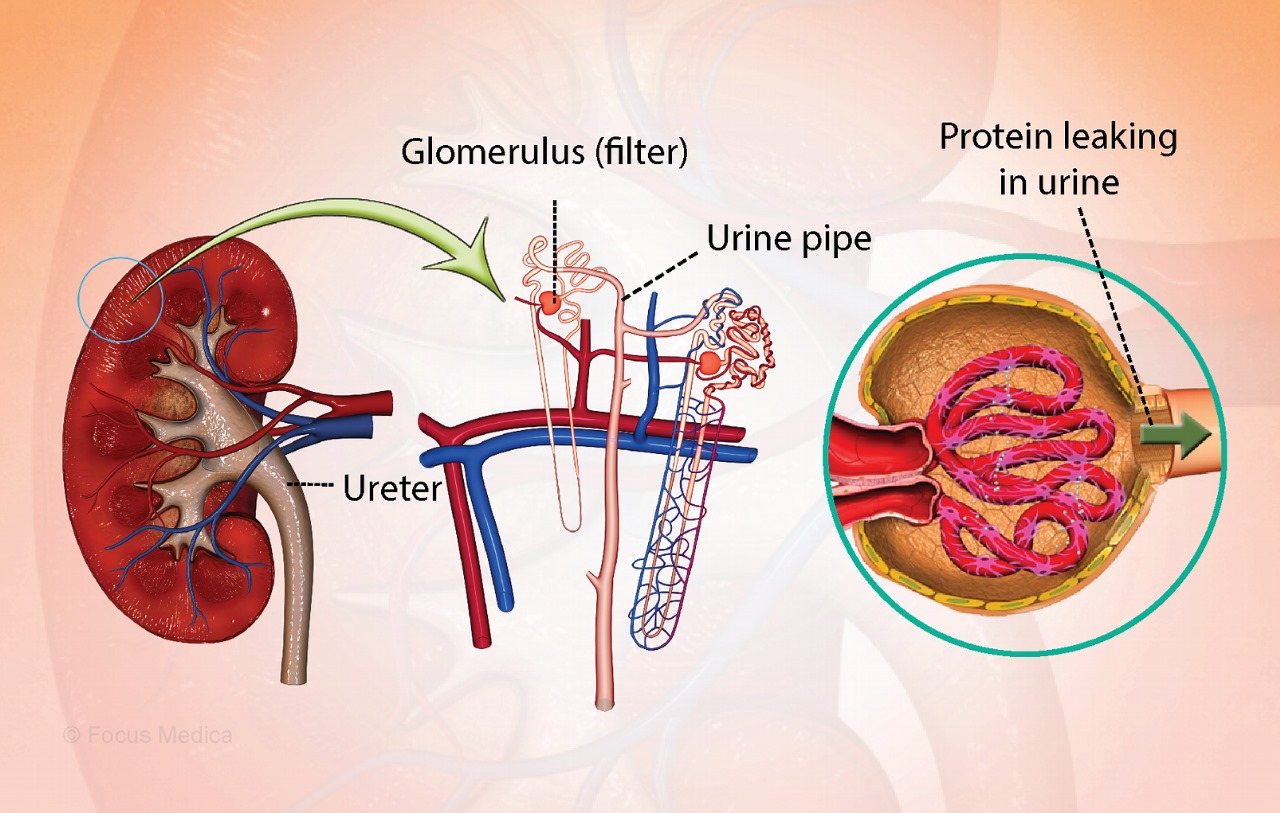
Nephrotic Syndrome
When you see the words “nephrotic syndrome,” you might think the words describe a specific disease that impacts a particular part of the body. Because we know “nephro” means kidney, we know this is a disease in the kidneys. But this isn’t quite true.
Nephrotic syndrome comes with a range of signs and symptoms. And just as there are a variety of signs and symptoms, so too are the ways nephrotic syndrome can affect people.
Nephrotic syndrome is a kidney disease where the kidney filters (glomeruli) allow too much protein (albumin) to escape from the blood stream to the urine. This means the protein, or albumin, level in our blood gets really low.
Because albumin helps blood vessels to keep fluids, when the supply of albumin becomes low, fluids escape the blood vessels and move to other parts of the body. This can cause a variety of problems, including:
- Swelling (edema) in the legs, face and abdomen
- Significant weight gain
- Elevated blood pressure
- Kidney injury
- Infections
- High cholesterol
- There is more than one type of nephrotic syndrome. And the syndrome can be either primary or secondary.
Primary Nephrotic Syndrome
“Primary” is used to describe the diseases that start the kidneys’ filtering system. The most common kind of primary nephrotic syndrome is called idiopathic nephrotic syndrome. Idiopathic means that a disease occurs with no established cause to date. The most common type of idiopathic nephrotic syndrome is called minimal-change nephrotic syndrome (MCNS) or focal segmental glomerulosclerosis (FSGS).
Usually primary nephrotic syndrome can be managed, but there will be relapses. Occasionally, the disease is not responsive to therapy and daily and/or multiple immunosuppressive drugs are required to control it. In some cases, kidney failure requiring dialysis may occur.
Secondary Nephrotic Syndrome
“Secondary” means that the nephrotic syndrome is secondary to another condition or disease. These could include any of the following:
- Lupus
- HIV
- Hepatitis
- Cancer/lymphoma
- Diabetes
- Heart failure
- Drug abuse
- Use of certain medications
- Exposure to toxins
No matter what type of nephrotic syndrome someone might have, it can cause significant problems and needs to be treated properly and quickly. It is critically important for patients with nephrotic syndrome to be seen by a nephrologist as soon as possible.
Diet that is recommended in Nephrotic Syndrome
In patients diagnosed with Nephrotic syndrome, the intake of salt, fat and protein must be checked. Also intake of water is restricted depending on patient's condition. It is recommended to consult a nephrologist who can guide you appropriately.
